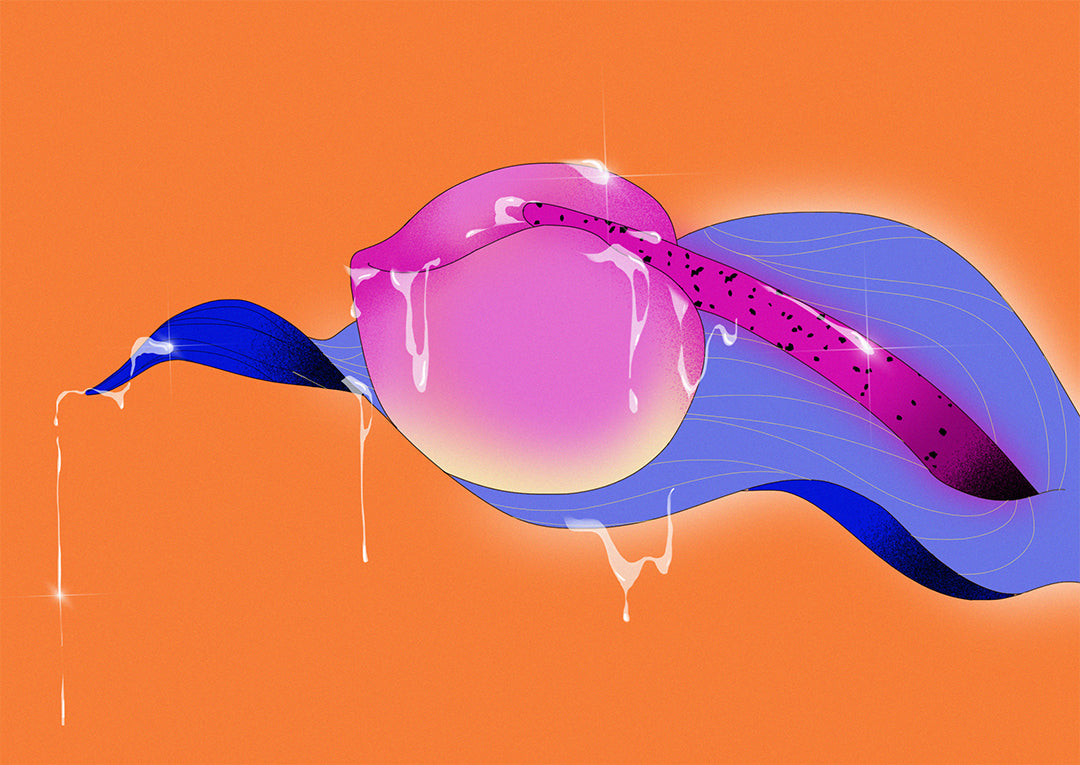
Menopause & Sex
Share
As we get older and our bodies start to undergo their final metamorphosis, many people experiencing menopause can feel a big disconnect between their desires and their capabilities. Even though they may feel like a twenty-year-old on the inside, their body is beginning to close up shop and go through changes that suggest old age is coming, despite how their mind might feel. In the instance of sex, many menopausal people feel a drastic change during the process, which morphs the nature of their sensuality and relationships with their partners.
Why Does Menopause Affect Your Sex Life?
Menopause is when the body naturally stops producing reproductive hormones and is most commonly signaled by 12 months without a period. When estrogen and testosterone levels start to decline, so does one’s sex drive; lower levels of these hormones cause a drop in blood supply to the genitals, affecting arousal, the ability to orgasm, and comfort during sex.
The most common side effects of menopause that affect one’s sex life are vaginal dryness and decreased libido, both caused by the newly lower estrogen levels and reduced blood flow to the vagina. Menopause can also cause the vaginal tissue to become more fragile and less stretchy, making sex uncomfortable and sometimes painful, especially when paired with vaginal dryness.
Other symptoms of menopause that can indirectly affect your sex life are hot flashes, difficulty sleeping, weight gain, depression, stress, and anxiety.
Treatments for Improving Sex Life during Menopause
Like many others, you probably aren’t ready to roll over and call it quits on sex just because your body is experiencing changes. If you’re interested in seeking options for improving your sex life during menopause, you are in luck, as many treatments help people adjust to this new time in their life.
The most effective treatment option for battling the effects of menopause is estrogen therapy, wherein estrogen is ingested in pill, patch, spray, or gel form to replenish the body’s declining supply and offset symptoms associated with low estrogen levels. However, there are inherent risks involved with taking concentrated estrogen (uterine cancer and sometimes stroke), so doctors recommend that estrogen therapy should only be given in the lowest dosage for the shortest amount of time necessary.
When explicitly targeting vaginal dryness, topical estrogen can be applied as creams, vaginal tablets, or vaginal rings (devices implanted in the vagina that secrete estrogen locally for up to three months). Water-soluble vaginal lubricants are also a great go-to in the moment to relieve vaginal dryness.
Other Options for Overcoming Decreased Libido
If systemic hormone treatments and/or vaginal estrogen therapy isn’t for you, there are still many ways you can improve your sex life once reaching menopause. Many couples find that focusing on foreplay, such as erotic massages, watching porn, or masturbation, has favorable results toward reaching orgasm. It can also be worthwhile to research different penetrative positions to find one that is the most comfortable and pleasurable for both parties.
Another option is to learn to enjoy other forms of intimacy that come naturally once your libido is lowered. Sexuality is not intrinsically tied to sex and sex drive, so if you’re not feeling aroused or in the mood, there’s no need to force yourself to want to have sex.
The changes menopause brings take some getting used to, including learning to feel fulfilled romantically and sensually as your relationship evolves, even with less penetrative sex. Wanting to be intimate with your partner to show love and passion does not always need to include sex; if you are experiencing a lower sex drive but still want to be intimate, you can try cuddling, romantic dinners, massages, and other forms of dedicated quality time.
It’s important to remember that even though prescription drug narratives push the idea that older women should still be sexually active--and of course, they can be--the nature of intercourse changes as your body ages. Couples will have less sex as they age due to the natural decline in libido, vaginal dryness, and/or erectile dysfunction.
Menopause is difficult, but it shouldn’t take away your ability to have sex. If you are struggling with symptoms of menopause that negatively impact your sex life, such as vaginal dryness or decreased libido, there are estrogen treatments and vaginal lubricants that can be of great service in your bedroom. Or, if you’re comfortable in this new stage of your life and don’t feel the need to prioritize sex anymore, you can begin exploring non-sexual intimacy practices with your beloved to keep the love and magic alive, even when sex isn’t sounding too appealing anymore.

